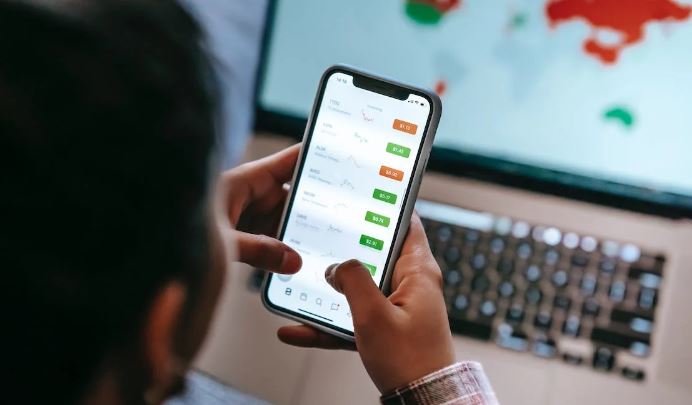Consistency with the right trading habits can help you to become very profitable in the long run. Acquiring the best iOS trading apps, maintaining good discipline, and establishing a working strategy can give you positive trading results.
However, if after some years of trading you’re still not profitable, there could be some things you are doing wrongly. Our aim is to ensure that every trader gets the right knowledge and psychology to grow from a noob trader to a professional trader.
We have outlined in this guide the seven habits that’s stopping you from becoming profitable and how to correct them.
Habit 1: Losing More Than You Win
Typically, trading is not only about being right or wrong. It is also about how much you make when you are right and how much you lose when you are wrong. It doesn’t matter if you are using the right strategy or maintaining a proper risk-to-reward ratio. What matters is what you find out when you check your monthly trading profit or loss statement.
If you are making consistent losses instead of consistent profits, then you may be losing more than you think you’re winning. Review your trading actions to see the mistakes you’re making and try to adjust them.
Try to win more money than you lose, cut your losses early, follow your risk-to-reward ratio, and allow you wins to run, instead of taking profit early.
Habit 2: Overleveraging
Overleveraging occurs when you use a position size that is way bigger than your account size. For instance, if you have a $500 account and you open a position with 2 lots, should the trade go against you with 25 pips, your equity will become zero.
25 pips shouldn’t blow your account if you are using the correct lot size. If you can’t sleep with your trade open, there’s a high chance that you’re overleveraging. You should always think about how much money you will lose if the trade does not go as planned, because no matter how confident you are, there is still the possibility of losing trades.
Ask yourself if you’re comfortable with losing that amount of money, or if you can afford to lose that amount. If not, use a smaller lot size. Slowly increase your lot size as your account increases and maintain a reasonable risk management plan.
Habit 3: Fear Of Missing Out (FOMO)
Novice traders tend to lose money to the market by jumping into trades, especially after an impulse move. Understanding that after an impulse move, price is definitely going to retrace, can help you beat the fear of missing out (FOMO).
When price has already made its big move, it’s best to forget it and wait for the retracement. Be aware of the fact that there will always be opportunities in the market.
Hence, if you miss a trade from its inception, don’t rush into it. Restrategize and wait for price to get to another key level before entering the trade.
Habit 4: Trading Without a Plan
Trading without a plan is like going for a competition without practicing. You often hear professional traders advice that you should follow your trading plan.
If you don’t have a trading plan, it indicates that every trade you take was a mistake in the first place. A trading plan guides your day to day trading activities, it helps you to identify potential profitable trades that align correctly with your trading strategy.
Create an effective trading plan and be disciplined to follow it through meticulously.
Habit 5: Blaming Everyone But Yourself
Most traders often blame the market when they get stopped out of their trade. They blame their mentors for providing a signal that ran into loss, they blame the economic news events, and even smart money. This is not a good way to trade and it’s definitely not a good way to learn. Blaming everyone but yourself for your losses or losing streak will not help you.
Nothing will change until you take responsibility. It is not your trading strategy because you are the one who created and executed the strategy. It is not your risk management plan, because you are the one that chose the position size. It is not the market, because you don’t trade the market, you trade your beliefs about the market.
The most important factor is YOU. Hence you should own the outcome, whether profit or loss. You created the result, so if you don’t like what you see, change what you do. When you take full responsibility, you would learn from the mistakes you make and understand what to do so as to avoid such mistakes next time. That is how you become a better trader.
Habit 6: Setting Unrealistic Expectations
Yes, you can get rich from trading, but it might not be today, or tomorrow, or even next year. Trading is not a get-rich-quick scheme, but rather a get-rich-slow scheme.
Nobody gets it quickly in their profession. You can’t become a doctor, lawyer, or engineer in a few months. It takes a lot of time to learn and master the craft, and that is the same with trading.
Trading is a high income skill and it’s going to take you a few years of practice, learning, and improving to master the skill. You have to LEARN before you get to EARN.
When you have unrealistic expectations, you begin to force trades, even when there are no opportunities. Forcing trades leads to losses and you eventually sabotage the chances of success you ought to have.

